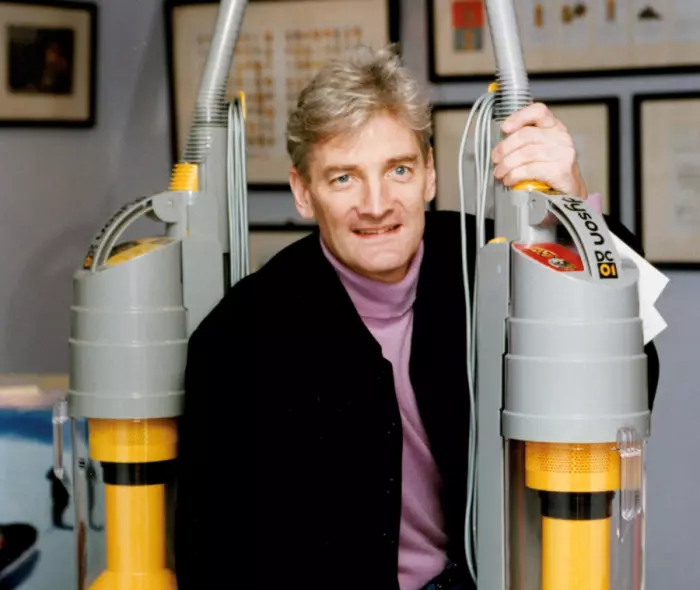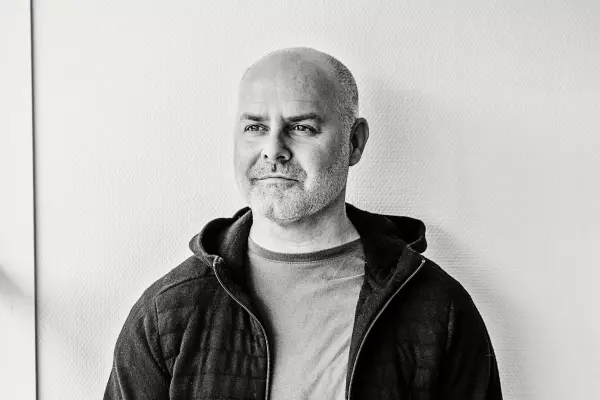In following a different path, obstacles will be put in the way of pioneering manufacturers, yet the process of creativity and of solving seemingly insoluble problems is rather wonderful. It is, though, hard to be pioneering because you don’t know whether or not you are going to succeed. You will stumble and have to pick yourself back up believing that you will succeed. It is scary − I am scared all the time. Fear, though, can be a good thing as it pumps the adrenaline and motivates. As sportsmen will confirm.
A life of perpetual learning, pursuing science, engineering and technology has certainly been a truly magical and fulfilling adventure, the quiet thrill of improving products through the application of technology and making them enjoyable and surprising to use. For an engineer, the creative impulse, the desire to improve things, and the need to solve problems, are a state of mind which cannot be switched off. It is there all the time, whether you’re at work or at home. It is the intellectual challenge of seeing frustrations and problems and developing a product or system that solves them.
Scientists and engineers combined recognise today’s problems and are capable of providing new solutions. History has proved this time and time again. The challenges of the future will be met and resolved by people who are young now, who can see the problems we face and have the urge − the impulse − to solve them. It is their world now and they don’t need people ranting about the end of the world, nor Jeremiah-like politicians proclaiming, nor even old people like me telling them what to do. The most important thing is that we encourage them to do it, to make their own mistakes along the way, while providing a supportive framework within which they can operate successfully.
I have great faith that science and technology can solve problems. From better, more sustainable and efficient products, to the production of more and better food, and a more sustainable world. It is technological and scientific breakthroughs, far more than messages of doom, that will lead to a more sustainable world. We need to go forward optimistically into the future as if into the light, and with bright new ideas rather than the darkness and end to human ingenuity portrayed by doomsayers.
After the event, a revolutionary new idea can look so obvious − surely no one could possibly have doubted it? At their conception, though, new ideas are not blindingly obvious. They are fragile things in need of encouragement and nurturing against doubting Thomases, know-it-alls and ‘so-called’ experts. Just as (inventor of the jet engine) Frank Whittle discovered, it is easy for people to say ‘no’, to dismiss new ideas and to be stick-in-the-muds, pessimists, or even cynics. It is much harder to see how something unexpected might be a success.
The depressing thing is that harbingers of doom and gloom get far more attention than optimists and problem solvers. I feel very strongly that progress should be embraced and encouraged, and it is a duty of governments and companies to catalyse the ideas of the progressives and harness them to achieve good ends. There is no denying that the world faces some rather big problems, but there is no sense in trying to force people to go backwards as a result, or to rewind progress. I am certain that we will overcome our greatest challenges by moving forwards, confidently, and having faith in humanity’s ingenuity. Problems are there to be solved, and this in itself is exciting and motivating.
For our part, Dyson has been lucky to recruit some wonderful young people who come bubbling with ideas and a desire to change things for the better. Many of these individuals have been fresh graduates, but now increasingly they are undergraduates, too, school leavers who are forging their education at the Dyson Institute of Engineering and Technology while at the same time contributing to the future.
Meanwhile, the rest of us need to stay young at heart and never less than inquisitive. A case in point is one of our most inventive Dyson engineers who is in his eighties. He has the curiosity of a young boy. He is an indefatigable optimist, challenging everything that needs to be challenged. He is enthusiastic and always willing to try new things. His is a truly creative mindset. There is hope, then, for us all as we look with clear and creative eyes and minds into a future where things can be so much better than they are today. We are at a truly fascinating juncture in human history and we must press on.
Dyson has certainly never stood still as it has ‘grown up’. At times, this has been uncomfortable and not everyone has understood why we have had to change. From those first trips to Tokyo to negotiate a licence agreement for G-Force, I have been excited about embracing the world. At its best, globalisation has the potential to raise everyone up. Success around the world provides the means to invest in research and better technology, driving our world forward. Today, we have people from fifty-four nations working at the Malmesbury campus in the UK, and people working for us in eighty-three countries around the world. We are stronger for it. They have a shared purpose and a global perspective but also a diversity of thought and culture. While age is no barrier at Dyson, most of the staff are young. They are open-minded and have the naïve intelligence to think differently.
These brilliant young people understand the problems facing the world on both a macro and micro scale. They are busy at work on a remarkable range of ideas and inventions that can and will make a difference to our lives. They are not academics publishing dry papers which set out simply to dismiss equally dry papers by rival academics. They are not would-be government scientists with all their smug expert advice which is often wrong. They are not driven by people shouting in streets and squares. They are working, hands-on, with fragile ideas fired by a creative impulse, and they need all the support I or any of us, running alongside to keep up, can give them. They are our future. Imagine if their spirit of optimism and invention was harnessed for the world.
These young people show the power that comes from being unafraid to pursue new ideas, challenge orthodoxy and their own beliefs. While I am loath to give anyone advice, I do encourage others, and remind myself, too, to be adventurous. We must follow our own stars.
Invention: A Life by James Dyson, RRP $55, is published by Simon & Schuster and is available from book stores and independent booksellers. James Dyson is donating his proceeds from the book to the charities chosen by Dyson people around the world. In New Zealand, it is currently Caring Families.









